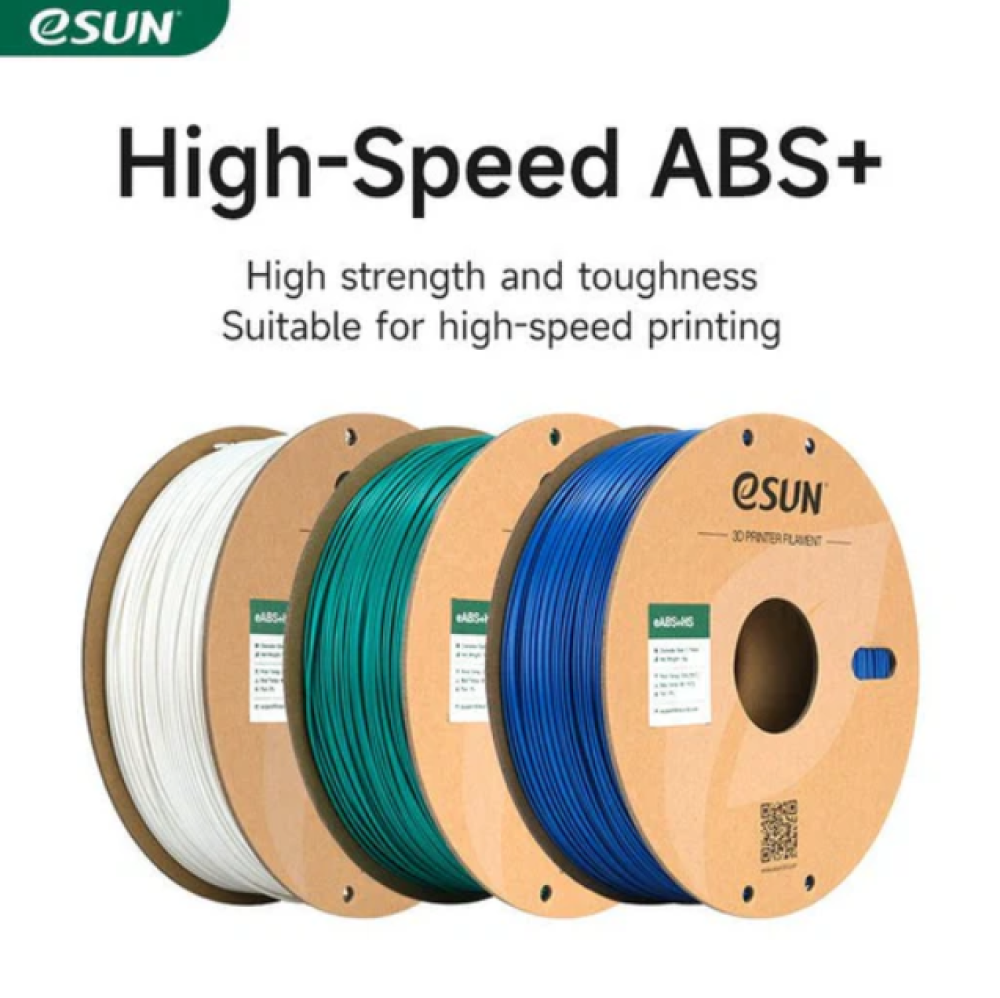introduction
eABS+HS filaments are an advanced option in 3D printing, offering a combination of strength, durability and high heat. If you are looking for a printing material that has excellent mechanical properties and can withstand harsh conditions, eABS+HS is the perfect choice.
What is eABS+HS filament?
eABS+HS filament is an improved version of traditional ABS filament, featuring improvements in durability, hardness and ability to withstand high temperatures. These filaments are designed to meet the needs of industrial and engineering applications that require high performance.
Benefits of using eABS+HS filament
1. High mechanical strength
eABS+HS filament has high strength and toughness, making it ideal for parts that need high durability.
2. Excellent thermal resistance
These filaments have a high temperature tolerance, making them suitable for use in harsh environments and applications requiring thermal resistance.
3. Good shock resistance
Thanks to their optimized composition, eABS+HS filaments provide excellent impact resistance, increasing the life of printed parts.
4. Easy to print
Despite its advanced properties, eABS+HS filament is easy to print and allows users to achieve high-quality results without major problems.
Uses of eABS+HS filament
1. Industrial applications
Thanks to its strength and durability, eABS+HS yarns are used in the manufacturing of industrial parts such as tools and engineering components.
2. Engineering fields
These threads are used in engineering applications that require precision and durability, such as mechanical parts and structural components.
3. Household tools and accessories
eABS+HS is ideal for printing household items that need durability and thermal resistance, such as kitchenware and technical tools.
Tips for printing with eABS+HS filament
1. Printing temperature
The ideal printing temperature for eABS+HS filament is between 230-260°C. It is best to start with a low temperature and increase it gradually to ensure good adhesion between the layers.
2. Heated printing platform
It is preferable to use a heated printing platform at a temperature of 90-110°C to improve layer adhesion and reduce distortions.
3. Good ventilation
Due to the nature of ABS filament, it is best to print in a well-ventilated environment to avoid the build-up of vapors.
Close of
eABS+HS filament is an excellent choice for 3D printing thanks to its mechanical strength, thermal resistance, and ease of use. Whether you're in engineering or manufacturing, eABS+HS is a printing material that delivers excellent performance and quality.

